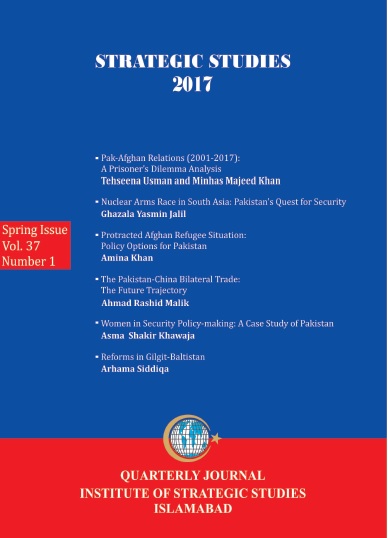Women in Security Policy-making: A Case Study of Pakistan
Keywords:
Women, Security, Participation, Audibility, Visibility, Decision-making, Peace-building, ChangeAbstract
Traditionally and historically masculine attributes are attached to the concept of “Security.” Therefore, security itself and the issues related to it are dominated by male members of a society. Such a situation leads to the absence of gender perspective from security policy-making in most of the countries in the world. Women’s perspective is absent from macro to micro level. Keeping in view the fact that women comprise almost 50 per cent of the world’s population, it is pertinent to give them their space in security policy-making. Women are the prime victims of conflicts, wars and poor security. Moreover, according to various researches, they view conflict differently and in a more holistic manner than males. This research study, while highlighting the significance of women’s role in the society, explores the situation of female participation in security policy-making in Pakistan against the backdrop of social, political, religious and gender perspectives. Finally, it offers recommendations for the way forward.

Published
How to Cite
Issue
Section

This work is licensed under a Creative Commons Attribution-NonCommercial 4.0 International License.



